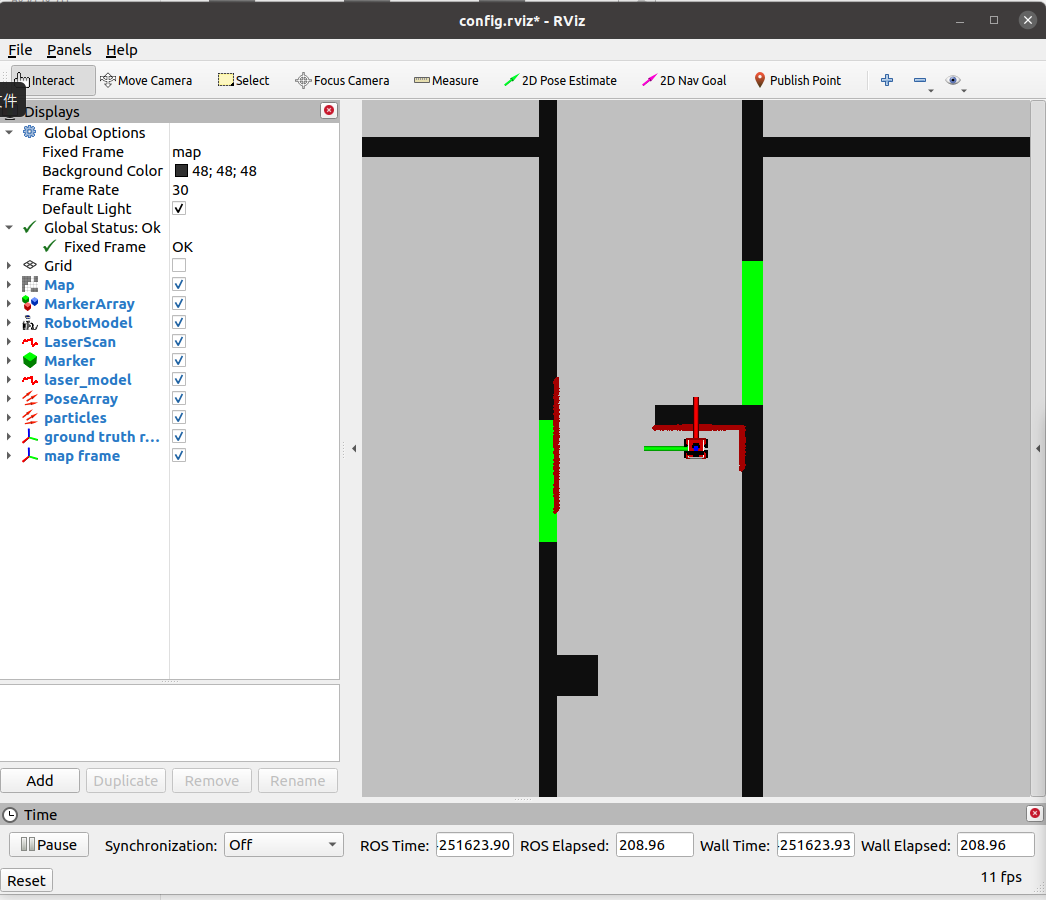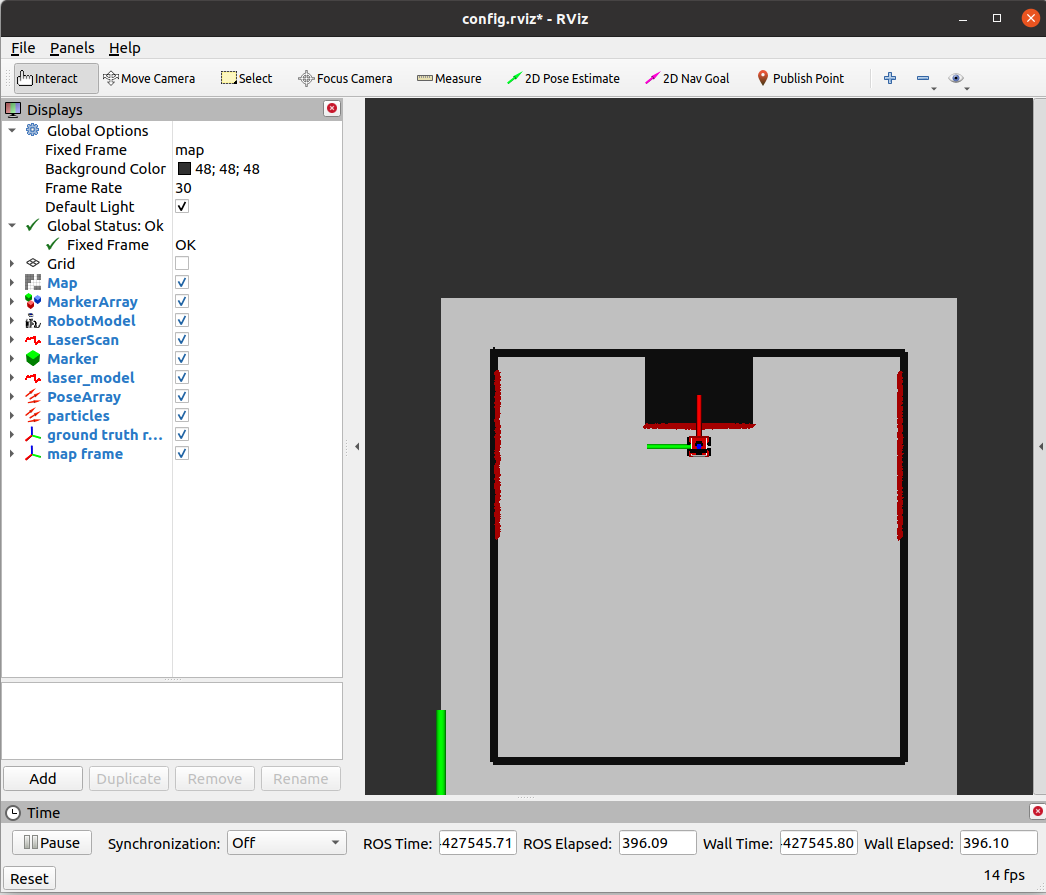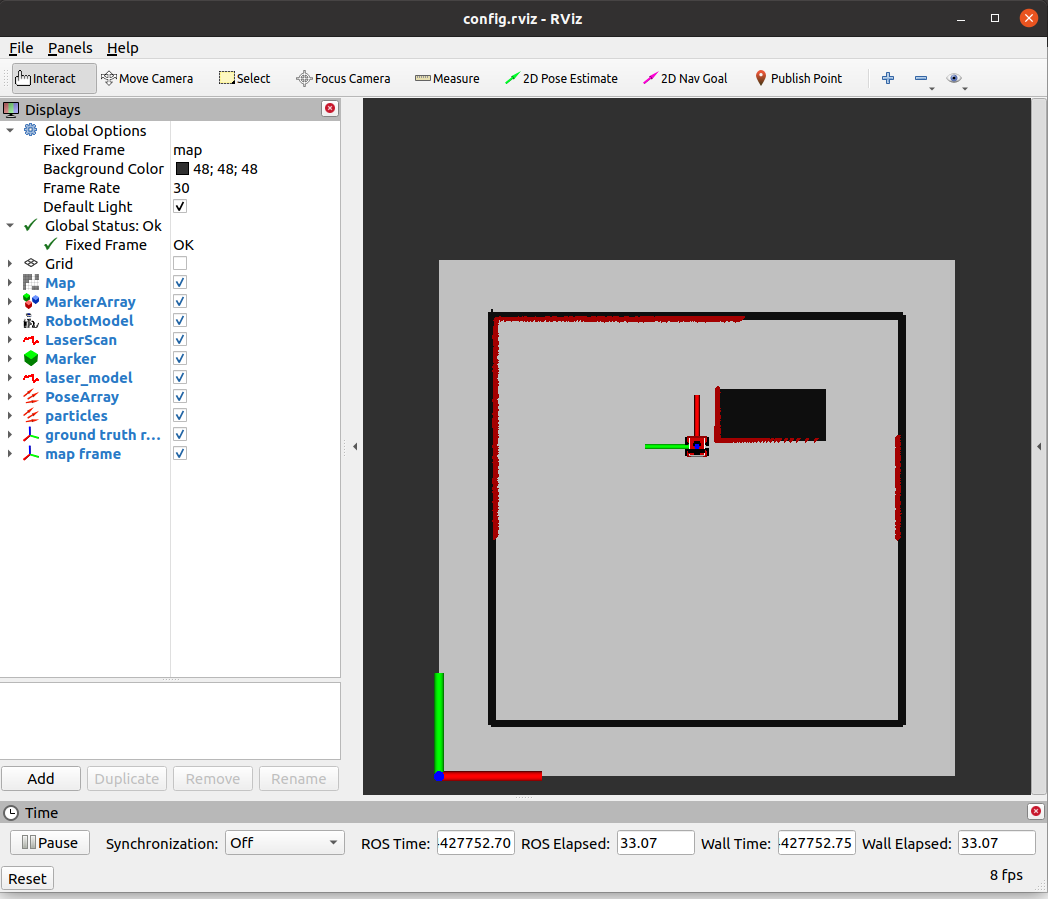Mobile Robot Control 2024 Ultron:Solution 1: Difference between revisions
Jump to navigation
Jump to search
No edit summary |
No edit summary |
||
| Line 1: | Line 1: | ||
Exercise 1: the art of not crashing | '''Exercise 1: the art of not crashing''' | ||
Hao: | Hao: | ||
| Line 17: | Line 17: | ||
#*Once the 'move' flag is set to 'false' , the control loop stops executing, effectively halting the robot's motion.[[File:Execise1 Hao.png|thumb]] | #*Once the 'move' flag is set to 'false' , the control loop stops executing, effectively halting the robot's motion.[[File:Execise1 Hao.png|thumb]] | ||
Exercise 2: Testing your don't crash | '''Exercise 2: Testing your don't crash''' | ||
Hao | Hao | ||
Revision as of 11:34, 30 April 2024
Exercise 1: the art of not crashing
Hao:
- Boolean Flag:
- A boolean flag named 'move ' is used to control whether the robot should continue moving or stop.
- It is initialized to 'true', indicating that the robot is initially allowed to move.
- Obstacle Detection:
- The program continuously reads laser sensor data inside the control loop.
- If any distance measurement from the laser scan is less than 0.2, an obstacle is detected.
- Stopping Action:
- When an obstacle is detected, the 'move ' flag is set to 'false'.
- Setting 'move ' to 'false' indicates that the robot should stop moving.
- Additionally, a stop command 'io.sendBaseReference(0, 0, 0)' is sent to the base controller immediately after detecting the obstacle.
- Control Loop Condition:
Exercise 2: Testing your don't crash
Hao


